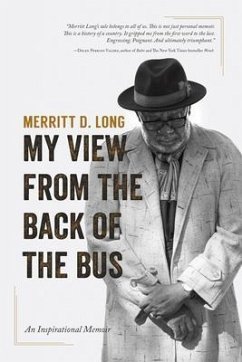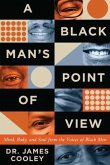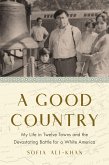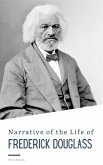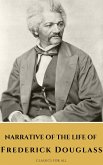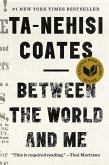Through his lens as a "colored" child, "Negro" teenager, "Black" young man, and finally successful African American state official, this book reveals how Merritt D. Long was shaped by - and helped to shape - American history.
Jim Crow laws, segregation and the civil rights movement are the backdrop to Long's childhood and youth in Alabama in the 1950's and 1960's. As a child, the color of Long's skin dictated what doors he could walk through, where he could sit on the bus, where he could eat, and what water fountains he could use.
But like many other southern Black people, the powerful pride of his family and community steeled him against the incessant insults of racism. And the civil rights movement help fuel his determination to become an educated, successful professional.
Along the way, including a Morehouse College education in Atlanta, he met and was inspired by Muhammed Ali, Rosa Parks, and Julian Bond.
But even at the pinnacle of his professional success as the head of several major state agencies, he continued to experience racist reactions to his authority and leadership.
His journey led him to become a widely admired community leader, a loving husband and father, and a mentor and benefactor to the next generation of young people who struggle to overcome economic hardship and the still-present barriers of entrenched, systemic racism.
Hinweis: Dieser Artikel kann nur an eine deutsche Lieferadresse ausgeliefert werden.
Jim Crow laws, segregation and the civil rights movement are the backdrop to Long's childhood and youth in Alabama in the 1950's and 1960's. As a child, the color of Long's skin dictated what doors he could walk through, where he could sit on the bus, where he could eat, and what water fountains he could use.
But like many other southern Black people, the powerful pride of his family and community steeled him against the incessant insults of racism. And the civil rights movement help fuel his determination to become an educated, successful professional.
Along the way, including a Morehouse College education in Atlanta, he met and was inspired by Muhammed Ali, Rosa Parks, and Julian Bond.
But even at the pinnacle of his professional success as the head of several major state agencies, he continued to experience racist reactions to his authority and leadership.
His journey led him to become a widely admired community leader, a loving husband and father, and a mentor and benefactor to the next generation of young people who struggle to overcome economic hardship and the still-present barriers of entrenched, systemic racism.
Dieser Download kann aus rechtlichen Gründen nur mit Rechnungsadresse in A, D ausgeliefert werden.
Hinweis: Dieser Artikel kann nur an eine deutsche Lieferadresse ausgeliefert werden.

